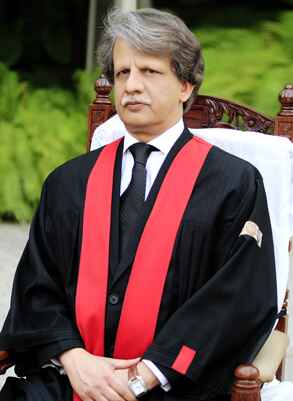Tahawwur Rana : A Comprehensive Overview of His Life, Legal Battles, and Controversies
Introduction
Tahawwur Rana is a name that has garnered significant attention due to his involvement in one of the most high-profile terrorism cases in recent history. Born in Pakistan, Rana is a Canadian citizen who has been embroiled in legal battles that have spanned over a decade. His case has been the subject of intense media scrutiny, legal analysis, and public debate. This article aims to provide a comprehensive overview of Tahawwur Rana’s life, his legal battles, and the controversies surrounding him. By the end of this article, you will have a thorough understanding of who Tahawwur Rana is, the charges against him, and the implications of his case.
Early Life and Background
Birth and Education
Tahawwur Hussain Rana was born on December 10, 1961, in Chichawatni, a small town in the Punjab province of Pakistan. He grew up in a middle-class family and received his early education in Pakistan. Rana later moved to Canada, where he pursued higher education and eventually became a Canadian citizen.
Career and Business Ventures
Rana is a qualified physician and practiced medicine in Canada for several years. However, he eventually shifted his focus to business ventures. He established a successful immigration consultancy firm, “First World Immigration Services,” which helped people immigrate to Canada and other countries. His business acumen and professional success earned him a respectable position in the Canadian-Pakistani community guruguidebook.
The 26/11 Mumbai Attacks and Rana’s Involvement
The Mumbai Attacks: A Brief Overview
The 26/11 Mumbai attacks, also known as the Mumbai terror attacks, were a series of coordinated terrorist attacks that took place in November 2008. The attacks, carried out by ten members of the Lashkar-e-Taiba (LeT) militant group, resulted in the deaths of 166 people and injured over 300. The attacks targeted several locations in Mumbai, including the Taj Mahal Palace Hotel, the Oberoi Trident Hotel, the Chhatrapati Shivaji Terminus railway station, and the Nariman House Jewish community center.
Rana’s Connection to David Coleman Headley
Tahawwur Rana’s name came into the limelight due to his association with David Coleman Headley, a key figure in the planning and execution of the Mumbai attacks. Headley, an American of Pakistani descent, was a close friend of Rana. The two had known each other since their school days in Pakistan.
Headley, who was working as an informant for the U.S. Drug Enforcement Administration (DEA), used his friendship with Rana to facilitate his activities related to the Mumbai attacks. Rana’s immigration consultancy firm was allegedly used as a cover for Headley’s reconnaissance missions in India.
The Charges Against Rana
In 2009, Tahawwur Rana was arrested by the FBI in Chicago on charges related to the Mumbai attacks. The charges against him included providing material support to the Lashkar-e-Taiba (LeT) and conspiring to commit terrorist acts in Denmark. Rana was accused of helping Headley by providing him with a cover for his activities, including setting up a fake office for his immigration business in Mumbai.
The Legal Battle
The Trial
Rana’s trial began in 2011 in a federal court in Chicago. The prosecution presented evidence that Rana was aware of Headley’s activities and had knowingly provided support to the LeT. The defense, on the other hand, argued that Rana was unaware of Headley’s terrorist activities and had been deceived by his childhood friend.
One of the key pieces of evidence against Rana was a series of intercepted communications between him and Headley. In these communications, Rana was allegedly heard discussing the planning of the Mumbai attacks and providing logistical support to Headley.
The Verdict
In June 2011, after a month-long trial, the jury found Tahawwur Rana guilty of providing material support to the LeT and conspiring to commit terrorist acts in Denmark. However, he was acquitted of the charges related to the Mumbai attacks. The verdict was met with mixed reactions, with some expressing relief that he was held accountable for his actions, while others were disappointed that he was not convicted for his alleged role in the Mumbai attacks.
Sentencing
In January 2013, Rana was sentenced to 14 years in prison by a U.S. federal judge. The judge noted that while Rana was not directly involved in the Mumbai attacks, his actions had facilitated the planning and execution of the attacks. The sentence was seen as a significant victory for the prosecution, which had sought a longer prison term.
Controversies and Debates
The Role of Intelligence Agencies
One of the most controversial aspects of Rana’s case is the role of intelligence agencies, particularly the CIA and the DEA. Headley, who was a key witness in Rana’s trial, had been working as an informant for the DEA at the time of the Mumbai attacks. This has led to allegations that U.S. intelligence agencies had prior knowledge of the attacks but failed to prevent them.
The Impact on U.S.-India Relations
Rana’s case has also had implications for U.S.-India relations. The Indian government has expressed frustration over the fact that Rana was not convicted for his alleged role in the Mumbai attacks. This has led to calls for greater cooperation between the two countries in combating terrorism.
The Debate Over Rana’s Guilt
There is ongoing debate over the extent of Rana’s guilt. While the prosecution argued that Rana was a willing participant in the conspiracy, the defense maintained that he was an unwitting dupe who had been manipulated by Headley. The jury’s decision to acquit Rana of the charges related to the Mumbai attacks has fueled this debate.
Life After the Trial
Imprisonment
Tahawwur Rana is currently serving his 14-year sentence in a federal prison in the United States. His case continues to be a subject of interest for legal experts, journalists, and the public.
Appeals and Legal Challenges
Rana’s legal team has filed several appeals challenging his conviction and sentence. These appeals have raised various legal issues, including the admissibility of evidence and the conduct of the trial. As of now, none of these appeals have been successful.
Impact on His Family
Rana’s imprisonment has had a significant impact on his family. His wife and children have had to cope with the emotional and financial strain of his incarceration. The case has also brought unwanted attention to his family, who have maintained his innocence throughout the legal proceedings.
Conclusion
Tahawwur Rana’s case is a complex and multifaceted one that raises important questions about terrorism, intelligence, and justice. While he was convicted of providing material support to a terrorist organization, the jury’s decision to acquit him of the charges related to the Mumbai attacks has left many questions unanswered. As Rana continues to serve his sentence, his case remains a poignant reminder of the challenges faced in the fight against terrorism.
FAQs
1. Who is Tahawwur Rana?
Tahawwur Rana is a Canadian citizen of Pakistani origin who was convicted of providing material support to the Lashkar-e-Taiba (LeT) and conspiring to commit terrorist acts in Denmark. He was acquitted of charges related to the 2008 Mumbai attacks.
2. What was Tahawwur Rana’s role in the Mumbai attacks?
Rana was accused of providing logistical support to David Coleman Headley, a key figure in the planning of the Mumbai attacks. However, he was acquitted of the charges related to the attacks.
3. What was the outcome of Tahawwur Rana’s trial?
Rana was found guilty of providing material support to the LeT and conspiring to commit terrorist acts in Denmark. He was sentenced to 14 years in prison but was acquitted of the charges related to the Mumbai attacks.
4. What are the controversies surrounding Tahawwur Rana’s case?
The case has raised questions about the role of U.S. intelligence agencies, the impact on U.S.-India relations, and the extent of Rana’s guilt.
5. Where is Tahawwur Rana now?
Tahawwur Rana is currently serving his 14-year sentence in a federal prison in the United States.
By providing a detailed and comprehensive overview of Tahawwur Rana’s life, legal battles, and the controversies surrounding him, this article aims to offer valuable insights into one of the most talked-about cases in recent history. Whether you are a legal expert, a journalist, or simply someone interested in understanding the complexities of terrorism and justice, this article provides a thorough and balanced perspective on the subject.






